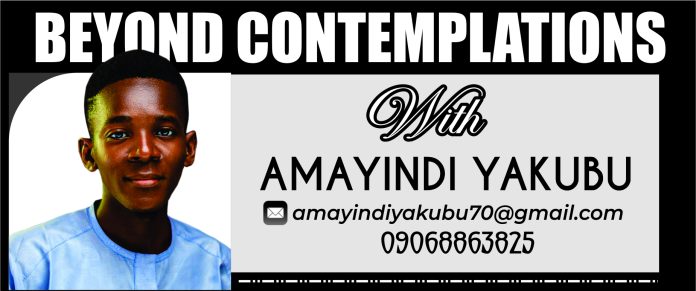“The rich rule over the poor, and the borrower is the slave of the lender.” — Proverbs 22:7. This short verse from the Holy Scripture cuts to the heart of a question Nigeria must now face. Borrowing can be useful. But when it becomes routine, when it funds recurrent spending rather than productive projects, it turns us into a nation that owes more and owns less of its future. Today, with public debt rising and new foreign loans lingering, we must pause and insist on a path that prizes reform and long-term self-reliance over quick debt fixes.
Nigeria’s total public debt rose to about ₦149.39 trillion as of March 31, 2025. That is a large and growing burden on the national purse. In July 2025, the Nigerian Senate approved a plan for more than $21 billion in foreign borrowing to cover shortfalls in the 2025 budget. This shows us how quickly new revenue has become our new source of revenue.
Do not get me wrong, debt is not wrong by itself. Loans for roads that open markets, for power projects that raise productivity, or for schools and hospitals with clear returns can make sense. But the problem lies in the persistent borrowing to close routine budget gaps and to cover for leaked revenue. Our nation spins a debt wheel that must be repaid with interest and later sacrifices for ordinary Nigerians.
Recent talks in the Nigerian political arena have shown discontent with the government over constant borrowing, even among loyalists to Aso Rock. This is not about criticising; it’s a call to caution we must all heed to avoid selling our destiny.
We have oil, yes, and solid minerals, arable land, and a large young workforce. We should be concerned about how to push policies that turn resources into lasting value for Nigerians. This will eventually mean faster implementation of gas-to-power projects and better regulation to stop oil theft and pipeline vandalism in the Niger Delta.
Clearer rules that attract long-term private investment in agriculture and processing so raw crops become food and export goods should be prioritised at the red chamber. Expanding the capacity of the Nigeria Sovereign Investment Authority to act as a stabilisation and investment tool for times when oil revenues are strong will be a beneficial action.
Improving revenue collection and closing leakages in our revenue generation is a goal that must be achieved. The new tax system, which will be effective next January, will help solve some of our tax problems as promised by our government. Many small businesses operate outside formal structures. Digital tools, simpler filing systems, and taxpayer services can bring more firms into the tax net without choking enterprise.
We must clamp down on corruption in contracts and procurement. Transparent, public procurement and citizen monitoring reduce waste and free money for development. The current scandal involving a prominent real estate mogul and some government officials should have been avoided if we had stuck to the rules.
Not every public project yields the same return. Roads that unlock markets, ports that boost exports, reliable power that lowers business costs, and irrigation that raises farm yields are examples of investments with clear economic returns. Let’s borrow only for projects with measurable payback and design repayment plans that match those returns and avoid loans to buy luxurious Sport Utility Vehicles for government officials.
Nigeria can borrow more from its own long-term savers at reasonable rates if the conditions are right. Pension funds, insurance firms, and long-term investors can fund productive projects if they trust the rules and the returns. Stronger local capital markets also reduce exposure to foreign-currency risk that comes with external loans.
The National Assembly and the executive must set clear limits on new borrowing. Any large loan must be published, explained, and debated before approval. Nigerians must know what is borrowed, for what project, at what cost, and how it will be repaid. An independent debt office with public dashboards should make accountability real for us to believe.
The federal government, as well as state governments, must cut wasteful expenditures and redirect those savings to development priorities. That might mean trimming redundant agencies, pausing nonessential capital projects, and enforcing a hard line on unproductive spending. Reforms hurt in the short run, but they stop the longer pain of a debt burden that throttles future budgets and the Nigerian future.
Let us be clear, this is not an argument that Nigeria should never borrow. Responsible borrowing for transformative projects remains an option, not a recurring pattern. This is a call to end the culture of borrowing as a first resort. Growing our economy from within will be slower in the short term, but it restores dignity and control to the Nigerian State. It protects future generations from being boxed in by debt payments and maintains Nigerian sovereignty and pride.
The proverb that opens this piece is also a warning and a guide. We should not be a people whose future is decided by lenders. We must become a people who use our resources with discipline, whose leaders choose projects by merit, and whose systems catch leaks before they become big scandals.
The question Nigerians must ask is whether we will choose the harder path of building our wealth or keep trading away tomorrow for temporary relief today. We must not resort to the aid called borrowing. I know which path I prefer.


